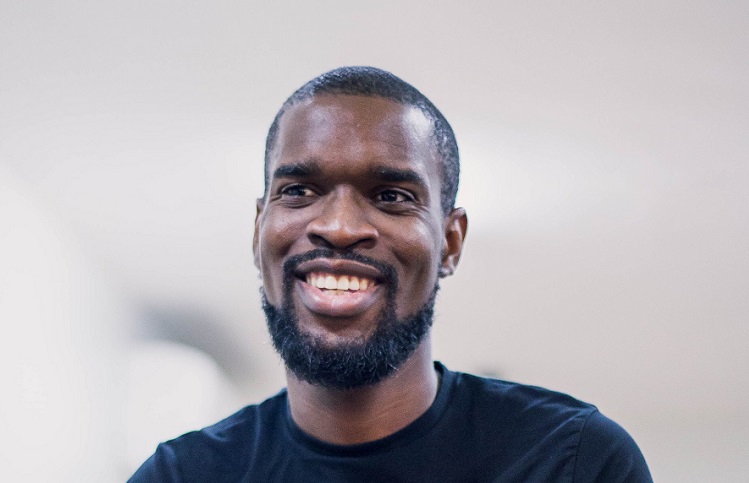Yele Bademosi’s life could have taken a very different direction, after he gained admission to study medicine at King’s College London.
Medicine, however, was not his passion.
“I always knew I wanted to be an entrepreneur, both my dad and mum had successfully started their own businesses so that had a massive influence on me,” he told Disrupt Africa. “It wasn’t until after my third year that I discovered the technology industry and I knew I needed to make a change.”
Bademosi dropped out of medical school, and spent the next 12 months learning how to design user interfaces and to code. He launched his first startup in the UK – Purple, a social app for university students.
“We raised an angel round but didn’t get the traction we needed to warrant a seed round. I learnt first hand how hard scaling social apps can be,” he said.
Some time later, he returned to Nigeria as general manager of Starta.
“When I moved back to Nigeria, I didn’t want to start a company. My plan was to learn and integrate myself within the technology ecosystem, my objective was to find a big problem that I could focus on solving for the next decade or two,” said Bademosi.
“Starta gave me the opportunity to achieve this and more. I was exposed to a lot of different stakeholders within the ecosystem and very quickly identified the “pre-seed funding gap” as a huge problem that was stifling the growth of the African technology ecosystem.”
Bademosi decided to leave Starta to focus exclusively on solving this problem at the end of last year, and launched Microtraction in July. An early-stage investment platform, Microtraction plans to invest US$65,000 in startups at the very earliest stage of their development.
“My vision and initial focus for Microtraction has always stayed the same, which is to increase the number of venture bankable startups across the continent and ultimately bridge the pre-seed funding gap that currently exists,” Bademosi said.
“So far we’ve had hundreds of applications and have spent the last few weeks reviewing companies and meeting with founders. We should be making our first set of investments by the end of September through to the first half of October.”
Once investments are made, Microtraction will work closely with its portfolio companies.
“We work with these companies to identify key metrics they should be focussing on and what they need to hit to raise a seed round within 18 months of our first investment,” Bademosi said.
“The number of companies that successfully raise a seed round within that timeframe is a very important metric for us at Microtraction. I also plan to travel to other tech clusters outside of Lagos so we can raise our awareness levels and get even more applications.”
Bademosi said Microtraction was lucky to have been able to get world class investors to join it on its journey, having raised money from a combination of local and global investors including Pave Investments, Michael Seibel and Chris Shultz.
“We are interested in businesses that are started by remarkable technical founders solving hard and valuable problems in really big markets. I’m most excited when founders have an authentic and compelling vision about the future of the markets in which they operate and are currently executing against that vision regardless of whether they raise money or not,” he said.
Although Microtraction is based in Lagos, it is interested in funding Africa-based or Africa-focused founders.
“The key caveat here is for founders to give us context about the markets in which they operate. We are actively working on expanding our partner network in other Sub-Saharan African markets who can help us diligence applications we receive from outside of Nigeria and Ghana,” Bademosi said.
He said he tries to separate truth from hype when it comes to Africa’s tech space, and not get carried away with the buzz.
“However, I’m long on the African technology sector and believe we would achieve true exponential growth within the next five to seven years. There are lots of smart, passionate, relentlessly resourceful people working on different bottlenecks that are currently limiting us from achieving our true potential as an continent and for that I’m bullish,” said Bademosi.
“It’s exciting to be at ground zero when all of this is happening and I am extremely grateful to be involved in playing my role in shaping it’s story and future.”
For all that potential, African startups still lack access to true risk capital.
“It’s harder for very talented people in the African technology ecosystem to raise a few thousand dollars than for someone in Silicon Valley to raise half a million dollars. My goal is to make it easier for founders by identifying global investors with the appetite for risk and oversized returns and connect those funds to remarkable entrepreneurs solving hard and valuable problems that will build the future of our continent and potentially improve the lives of millions of people,” he said.
“I think investor interest in Africa has exponentially increased over the last two years – the top 3 accelerators’ focus on the continent has played a role globally, as well as angel networks like ABAN playing a role locally,” Bademosi said.
“The best way to generate real interest is to show that money can be made by investing in African startups. For this to happen we have to get significant exits – our role is to feed the top of that funnel and make those exits a reality.”


